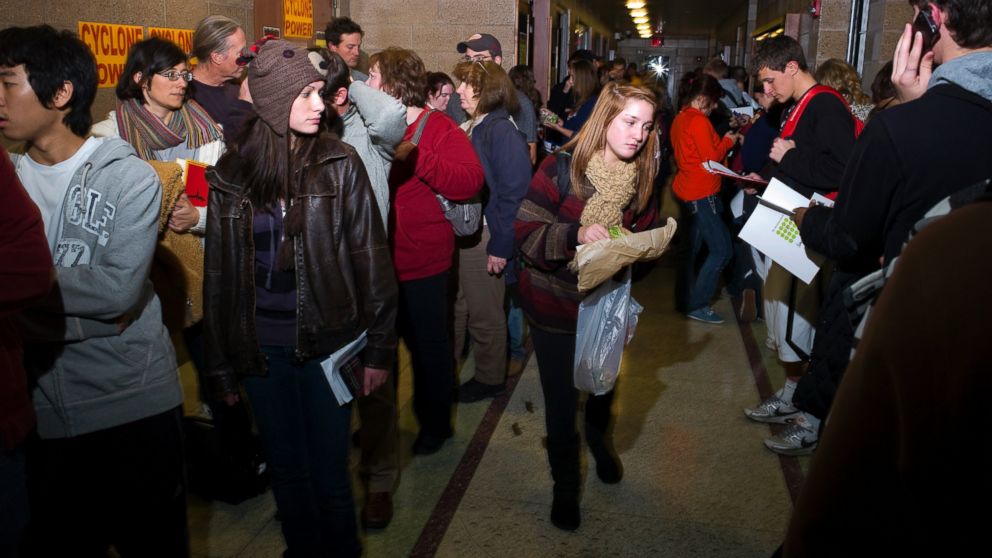
Many Democrats who are fighting to win re-election next week were swept into office with President Obama in 2008, with the help of millennial voters.
Now, more than half of likely 18-29 year-old voters want a Republican-led Congress, according to a new poll from the Harvard University Institute of Politics.
It’s a marked shift for the youngest and largest generation of voters, who have supported Democrats reliably since 2004.
The group now appears more in line with the rest of the country.
Millennials who said they will “definitely be voting” favor a Republican-led Congress 51-47 percent, according to the poll. An ABC News/Washington Post poll released earlier this week found that roughly half of Americans plan to vote for Republicans this election, 50-44 percent.
The two polls had identical approval ratings for Obama’s performance, at 43 percent.
According to Harvard/IOP poll, 46 percent of young Hispanic voters approve of the president, down from 60 percent this spring, a troubling sign for Democrats counting on Hispanic support in places like Colorado.
The poll found that millennials continue to support Democrats overall, and trust the party to handle issues like race relations, immigration and foreign policy, but the fact that the millennials most motivated to vote favor Republicans makes the group a “swing constituency,” according to John Della Volpe, the IOP’s director of polling.
According to Della Volpe, many of the millennials voting next week have come of age under Obama with no memory of the second Bush administration that drove many young voters to the Democratic Party in 2008.
“We may be looking at the third wave of millennials,” Della Volpe said. “Their first experience is really about two major events: a recession and a gridlocked Congress … When you look at is this way, it’s not surprising that they’re up for grabs.”
Republican National Committee spokesman Raffi Williams said today the poll showed that millennials are “sick and tired of the false promises from Democrats.”
Democrats said the poll showed frustration with Washington gridlock, and not the Democratic Party.
“Young people are looking for solutions, be they from inside or outside of government, but they approach this conversation from a core belief in the values that Democrats continue to stand for,” said Democratic National Committee spokesperson Rob Flaherty.

